
10
Feb
AUSSOM and the Future of Somalia’s Security: Addressing Regional Rivalries and Counterinsurgency Challenges
The establishment of the African Union Support and Stabilizing Mission in Somalia (AUSSOM) marks a new chapter in the efforts to bring peace to Somalia. This initiative coincides with emerging diplomatic and security challenges in the Horn of Africa region. The ongoing dispute between Somalia and Ethiopia, coupled with Egypt’s growing influence in the area, has added complexity to the struggle against al-Shabab. From its inception, AUSSOM faces numerous obstacles, including financial constraints, coordination issues, and the intricate security landscape of Somalia. These factors collectively contribute to the mission’s multifaceted challenges as it begins its operations in the region.
AUSSOM itself is an extension of the previous mission. It takes on largely the same goals—building up the capacity of the Federal Government of Somalia (FGS) and its forces to handle its security concerns while deterring al-Shabab’s capacity. It also takes on the challenges of its predecessor, including funding issues and a stubborn and persistent al-Shabab. Unique to AUSSOM, it is only mandated to deploy up to 12,500 security personnel, which is a shrink-down compared to ATMIS, which at its height deployed around 18,000 forces in operation. This is largely in line with the mission’s goal to gradually hand over security responsibilities to Somalia’s government.
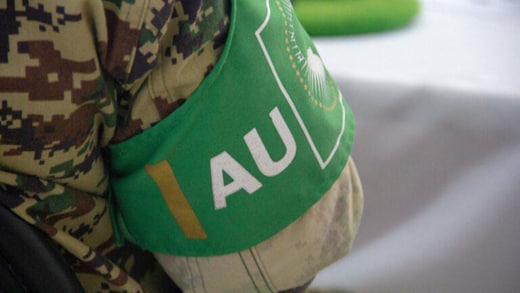
As mentioned, the peace mission comes at a time of complex security dynamics for Somalia, Ethiopia, and the Horn of Africa. Ethiopia has in recent years adopted a more proactive foreign policy and rigorously pursued its national interests. Under this, one of the central matters of interest for the country, access to the Red Sea, prompted it to establish relations with Somaliland, which welcomed Ethiopia’s offer to work on areas of mutual benefit. These steps sparked strong opposition from Somalia. Its president, Hassan Sheikh Mohamud, and Prime Minister, Hamza Abdi Barre, distanced their country from Ethiopia and refused to engage in diplomacy. President Hassan Sheikh Mohamud strained the relationship further by forming alliances with Egypt and Eritrea, two countries with their grievances against Ethiopia and active in undermining its position and interests.
One of the Federal Government of Somalia’s (FGS) moves then was to remove Ethiopia from the Troop Contributing Countries (TCCs) TCCs for AUSSOM. Prime Minister Barre proclaimed that Ethiopia’s MoU with Somaliland needed to be scrapped for Ethiopia to participate. After a continued diplomatic row, it was with Turkey’s mediation efforts, the signing of the Ankara Declaration, and later Hassan Sheikh’s visit to Ethiopia that eased tensions and later normalized diplomatic relations. After that, several discussions and agreements among the intelligence and defence establishments of the two countries resulted in the re-inclusion of Ethiopia in AUSSOM.
However, the re-inclusion doesn’t necessarily restore the previous security arrangements on the AU peace mission and the Horn of Africa in general. Rather, there have been several significant shifts that pose a problem for Ethiopia. Primarily, the arrangement between Villa Somalia and Cairo invited Egyptian troops onto Somali soil—both under AUSSOM and based on a bilateral security arrangement. The Egyptian presence emerged not out of the need to stabilize Somalia, but out of Egyptian geopolitical interest to deter and rival Ethiopian activities. The timing of these arrangements is a significant indicator of the matter. Amid these multifaceted challenges, one issue stands out as both a reflection and a catalyst of the broader geopolitical dynamics: the allocation of troops in AUSSOM.
One of the key challenges for AUSSOM is the debate surrounding the allocation of troops among the troop-contributing countries (TCCs). Although the figures on troop allocation are not clear, Ethiopia’s possible reduced presence under AUSSOM presents dangers for the mission. Ethiopian troops stand as the most experienced in operating in Somalia. After the rise of the radical Islamic Courts Union (ICU) following a long civil war, it was an Ethiopian intervention that dismantled the group and supported the establishment of a federal government. Beyond the intervention, Ethiopia’s forces have been deeply involved in Somalia’s security landscape for decades, continuing to support the FSG and successfully combating al-Shabab. They have deep familiarity with the terrain, clan dynamics, and Al-Shabaab’s operational patterns Ethiopian troops have expertise in conducting counterinsurgency operations in the group’s stronghold in rural Somalia. They have intelligence-sharing and operational experience critical for dismantling al-Shabab’s networks.
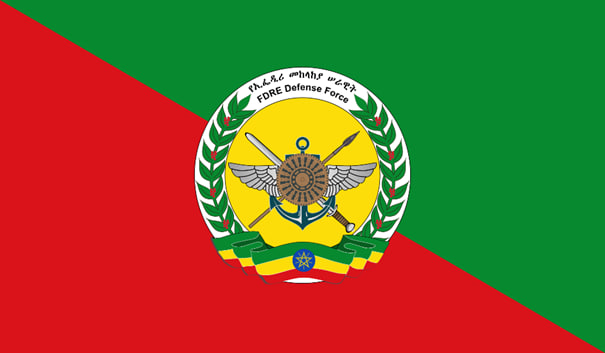
Ethiopia’s security is also deeply tied with Somalia’s stability. The countries share a long and porous border. An unstable Somalia serving as a breeding ground for terrorist groups has put Ethiopia’s and the region’s stability at risk. If Ethiopian troops are reduced, the loss of their strategic and tactical knowledge could create critical gaps that other AUSSOM forces may struggle to fill. Their limited presence could weaken the mission’s overall effectiveness. This, in turn, may allow Al-Shabaab to exploit security voids, not only threatening the stability of Somalia but the Horn of Africa Region.
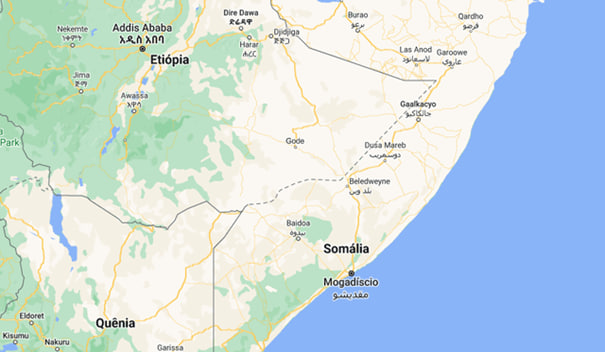
For the mission to succeed, it is crucial that all decisions are based exclusively on the security interests of Somalia and the region. The ongoing deployment of Ethiopian troops, known for their counterinsurgency expertise and in-depth local understanding, is essential for strengthening AUSSOM’s operational capabilities. Their specialized abilities enhance the mission’s effectiveness in addressing insurgent challenges and creating a foundation for long-term stability in Somalia.
By Ambassador General Bacha Debele, Ethiopia’s Ambassador to Kenya
X: @ButaDubi
_____________________________________
Ambassador General Bacha Debele is a seasoned diplomat and military strategist, recognized for his leadership in regional security and Ethiopia’s peacekeeping efforts. With decades of experience, he has played a key role in Ethiopia’s shift from direct military intervention to multilateral peacekeeping, particularly in Somalia. Currently serving as Ethiopia’s Ambassador to Kenya, he continues to be a pivotal figure in advancing Ethiopia’s foreign policy and strengthening its diplomatic presence in the region.

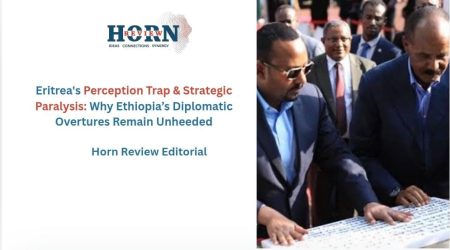
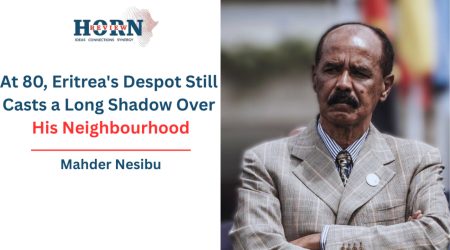
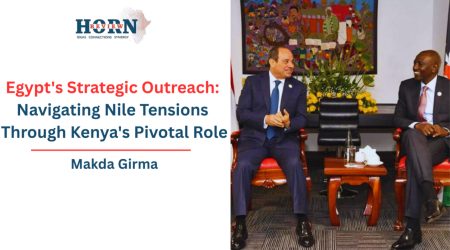
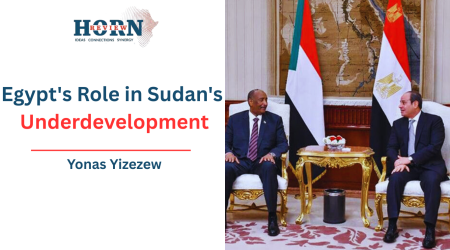
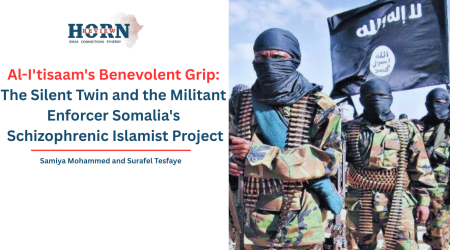
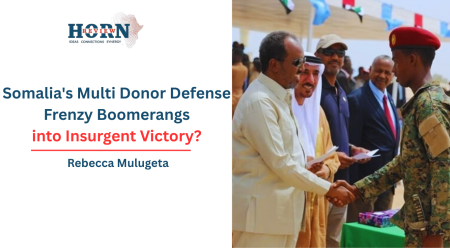
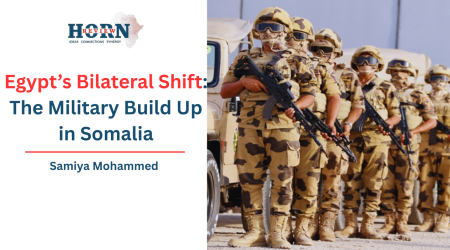

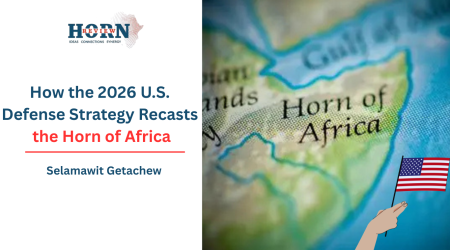
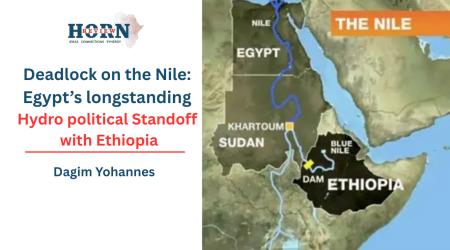
Comment (1)
Great Ambassador General Bacha Debele!!!!! We love you!!!